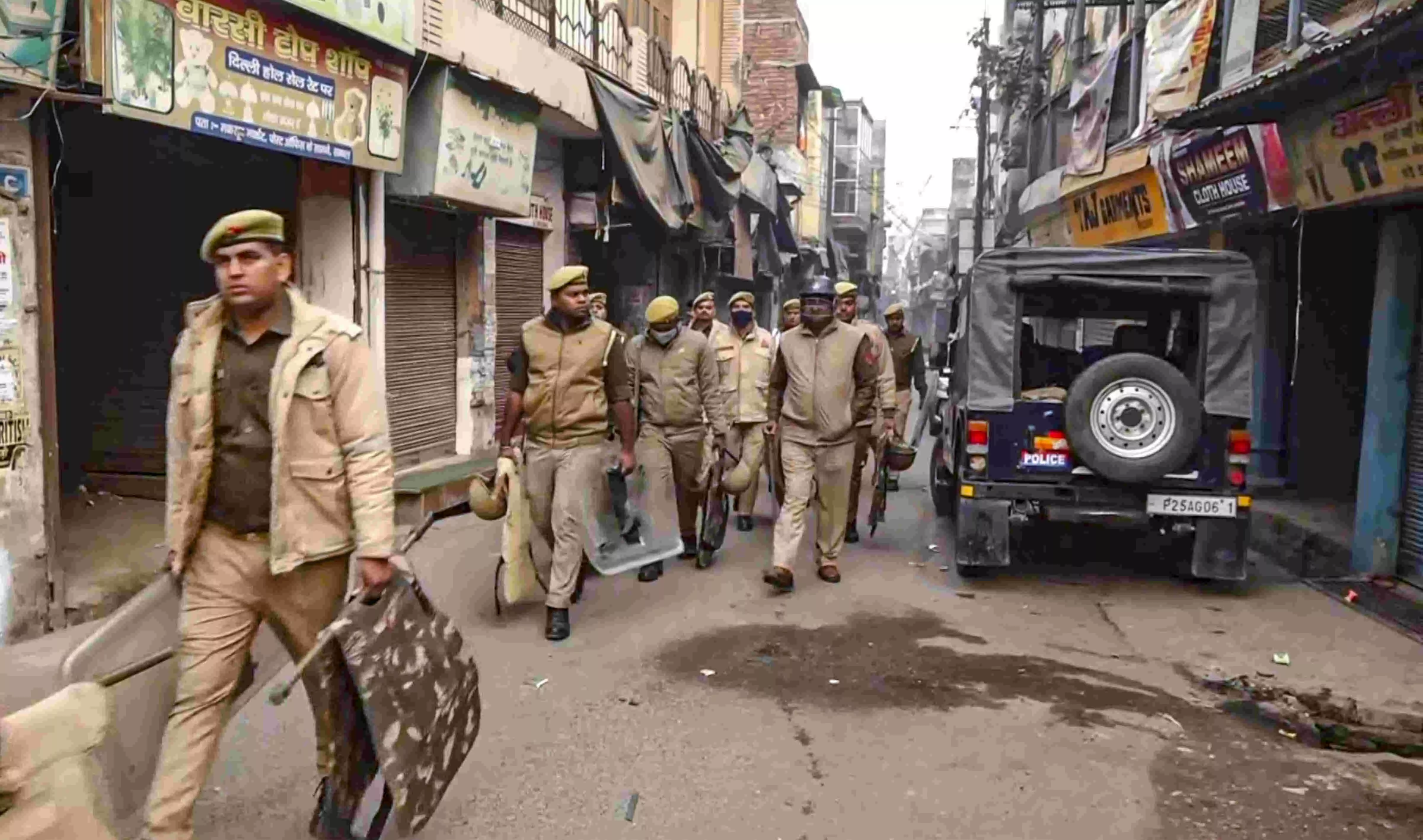Destructive distortions?

The violence in Sambhal over the survey of the Shahi Jama Masjid indicates how vulnerable communal harmony in India has become. The clashes—claiming at least five lives and leaving dozens injured—expose the deep divisions prevailing in India. Historical grievances are increasingly being weaponised to sow discord among Indian communities. In the midst of all this, the constitutional principle of ‘secularism’ is being thrown in the wind. More worryingly, such actions are often premised on the façade of maintaining or following law and order.
The case in question is a court-ordered survey of a 16th-century mosque, following a petition alleging it was built on the ruins of a Hindu temple destroyed by Babur. This is, in fact, part of a broader claim that Mughal-era rulers destroyed temples to construct mosques, which, of course, is unfounded. Reviving these controversies centuries later—ostensibly in pursuit of consolidating the vote base and pushing a unilateral agenda—threatens the delicate balance of coexistence in a country that is reverently regarded as a melting pot of civilisations . The Places of Worship Act, 1991, was specifically designed to avoid such conflicts. It protects the religious character of sites as they stood in 1947, with exceptions like Ayodhya that were already in court. However, the persistent challenges to this law reveal an alarming trend of stoking historical wounds for present-day gains, often at the expense of peace. In Sambhal, the court's decision to order a survey without consulting the mosque's caretakers inflamed the situation. Poor communication by the local administration, coupled with the hurried actions, is reported to have created a climate of mistrust. By the time the survey team arrived, tensions were already high. Large crowds of protesters gathered, voicing anger and suspicion. The unrest quickly escalated into violence—stones were thrown, vehicles set ablaze, and the police are reported to have responded with tear gas. Allegations and counterclaims have since muddied the waters—protesters allege police fired live rounds, while officials stand in denial mode.
This tragedy has, inevitably, become a political flashpoint. Opposition leaders have accused the BJP-led Uttar Pradesh government of using the incident to polarise voters, while the ruling party defends its actions as adherence to judicial orders. A truly democratic and rules-based government should refrain from merely parroting the words of law while neglecting its clear distortion in practice. The essence of law relies as much on the spirit behind it as on the carefully crafted words. Any deviation from this balance is synonymous with transition to authoritarianism and anarchy—the greater and more apparent the deviation, the more anarchical the government’s approach. What happened in Sambhal is indeed a symptom of a fractured society. Incidents like this leave lasting scars, deepen divisions, and embolden extremist voices on all sides. They threaten the inclusive and harmonious society humans across the globe aspire to build. The judiciary, too, should tread carefully. While courts must address petitions, they should also consider the broader impact of their orders, especially in sensitive cases involving religious sites. The state’s response—shutting down the internet, imposing curfews, and detaining individuals—is a necessary step to restore order, but it must be accompanied by transparency and accountability. Allegations of police excesses should be investigated impartially, and findings made public to rebuild trust.
At its core, this issue calls for introspection on how Indians view and use their history. Historical grievances cannot become a perpetual excuse for division. Leaders across political, religious, and social spheres must come together to rebuild dialogue and understanding. The media and civil society also have a crucial role in countering divisive narratives and highlighting the shared heritage that unites all citizens—irrespective of the community they belong to. The soul of India is being tarnished. Its sanctity has to be retained at all costs.



